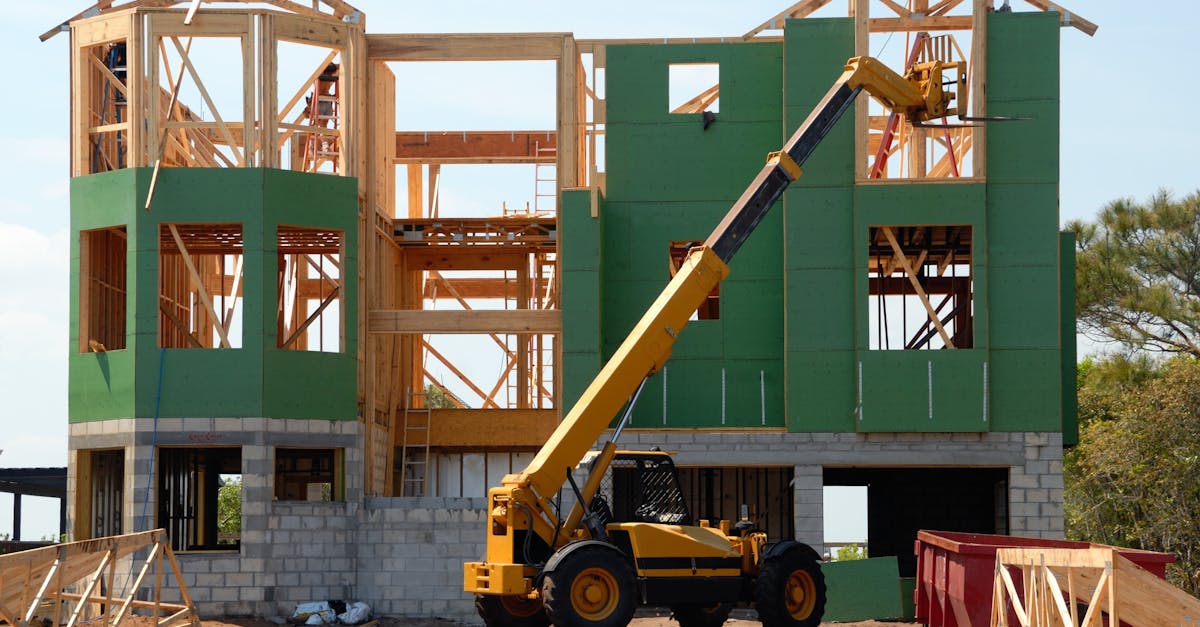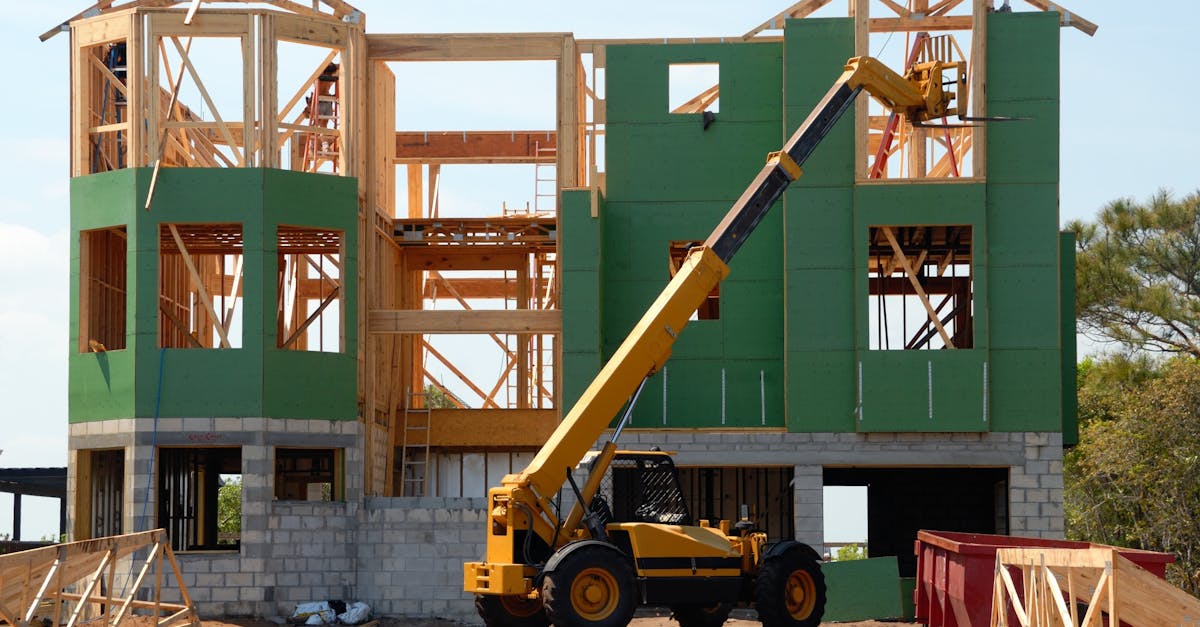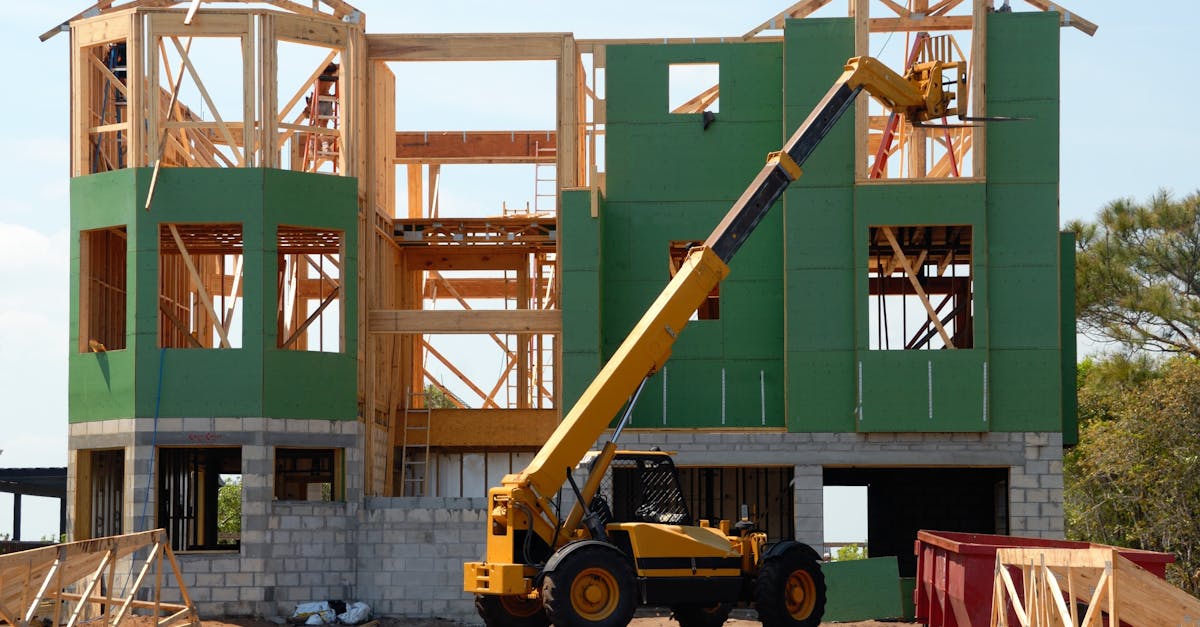
Legal Remedies for Easement Violations
Easement violations can lead to significant financial repercussions for the affected parties. When a property owner interferes with the use of an easement, the injured party may pursue monetary damages to compensate for any losses incurred. These dam...
Read more →
The Importance of Title Searches in Property Rights
During a title search, several essential documents are reviewed to ensure the property's ownership history is clear and valid. The most important document is the deed, which details the transfer of property ownership. This document is often accompani...
Read more →
Prescriptive Easements: What You Need to Know
Understanding the distinctions between these two types of easements is crucial for property owners. A prescriptive easement arises from the continuous and open use of a property that is not owned by the user, typically established over a period of ti...
Read more →
The Impact of Zoning Laws on Property Rights
Zoning laws play a fundamental role in shaping local economies by regulating land use and influencing property values. These laws can either enhance or hinder economic development, depending on their strictness and the community's needs. For instance...
Read more →
Common Disputes Over Property Rights and Easements
Establishing clear documentation of property rights is essential for preventing future disputes. Homeowners should begin by obtaining a copy of the property's deed, which serves as the primary legal document evidencing ownership. It's advisable to al...
Read more →
The Process of Establishing an Easement
Drafting an easement agreement involves creating a legally binding document that outlines the specific rights granted to one party over the property of another. Clarity is crucial, so the document should detail the nature of the easement, whether it'...
Read more →
How to Negotiate Easements with Neighboring Property Owners
Initiating a conversation with your neighbor about an easement can seem daunting. Establishing a positive rapport is crucial. Choose a time when both of you can engage without distractions. A friendly and open attitude reduces tension and demonstrate...
Read more →
The Role of Easements in Property Development
Easements play a crucial role in property development by providing necessary access and utilization rights. These legal agreements allow developers to cross over or use the land of others for specific purposes, such as utility installations, road acc...
Read more →
Types of Easements and Their Legal Implications
Conservation easements are legal agreements that restrict land use to protect its conservation values. These easements are typically placed on land that has significant ecological, agricultural, or recreational importance. Landowners voluntarily agre...
Read more →
Understanding Property Rights in Real Estate Transactions
Property rights form the bedrock of real estate transactions. These rights are defined by a combination of statutory laws and common laws that vary from state to state. Statutory laws are created by legislative bodies and provide a framework that gov...
Read more →
The Relationship Between Environmental Impact Assessments and Zoning Laws
Environmental impact assessments (EIAs) often encounter numerous challenges when attempting to align with existing zoning laws. One significant obstacle is the variability in regulations across different jurisdictions. This inconsistency can lead to ...
Read more →
Best Practices for Preparing an Environmental Impact Assessment
Predicting and analyzing potential environmental impacts is a critical component of any comprehensive environmental impact assessment. This process involves identifying the various environmental components that might be affected by a proposed project...
Read more →
The Future of Environmental Impact Assessments in Real Estate Development
Environmental Impact Assessments (EIAs) have played a crucial role in guiding real estate developments that prioritize ecological health and community well-being. A notable case is the revitalization project of an urban waterfront area in Seattle. Th...
Read more →
Case Studies: Environmental Impact Assessments in Action
The evaluation of wind farm development in rural areas often illustrates the complexities involved in Environmental Impact Assessments (EIAs). Community acceptance plays a crucial role in shaping the outcome of these projects. Stakeholders, including...
Read more →
How Environmental Impact Assessments Affect Property Development
Environmental impact assessments serve as a crucial tool in shaping the design of new property developments. They provide insights into how the proposed project will interact with local ecosystems, wildlife, and community resources. Developers often ...
Read more →
Key Components of an Environmental Impact Assessment
The involvement of the public in the Environmental Impact Assessment process is crucial for achieving a comprehensive understanding of potential effects. It allows community members to voice their concerns and share valuable insights regarding local ...
Read more →
Understanding the Importance of Environmental Impact Assessments in Real Estate
Environmental impact assessments often encounter various hurdles that can hinder their effectiveness. One significant challenge is the interpretation of complex environmental data. This complexity can lead to misunderstandings or oversights during th...
Read more →
Navigating State and Federal Regulations for Environmental Impact Assessments
Public participation is a cornerstone of the Environmental Impact Assessment process. Engaging communities allows stakeholders to voice their concerns, share local knowledge, and influence decision-making. Transparency in these processes fosters trus...
Read more →
The Role of Real Estate Lawyers in Environmental Impact Assessments
Real estate lawyers play a crucial role in ensuring compliance with a complex web of regulations that govern environmental impact assessments. Each jurisdiction has unique laws that may affect property development projects. Local ordinances can impos...
Read more →
Common Challenges in Conducting Environmental Impact Assessments
Efficiently managing time is critical in the environmental impact assessment process. Leaders must establish a clear timeline that accommodates various stages, such as data collection, public consultation, and review. Rushed assessments can lead to i...
Read more →
Future Trends in Land Use and Development Law
Incorporating public participation into land use decisions represents a vital shift in urban planning and development. Engaging local communities allows for diverse perspectives, ensuring that the needs and concerns of residents are adequately repres...
Read more →
The Importance of Comprehensive Plans in Development
Effective land use and strategic resource allocation play crucial roles in urban planning. Comprehensive plans serve as blueprints guiding development efforts, ensuring communities grow in alignment with both current needs and future aspirations. A w...
Read more →
Case Studies in Successful Land Use Planning
The integration of technology into land use planning has transformed the way communities approach development and resource management. Geographic Information Systems (GIS) are instrumental in visualizing and analyzing spatial data, allowing planners ...
Read more →
Legal Challenges in Land Use Planning and Development
Local ordinances can often be intricate and challenging to decipher, posing substantial hurdles for developers and planners. Each jurisdiction may have its own set of zoning laws, land use regulations, and environmental requirements that must be navi...
Read more →
Strategies for Effective Land Use Planning in Urban Areas
The inclusion of green spaces in urban areas plays a crucial role in enhancing ecological health. Parks, gardens, and green roofs provide habitats for various species, contributing to biodiversity. These areas facilitate important ecological processe...
Read more →
The Impact of Community Input on Land Use Decisions
Incorporating community input into land use decisions often faces significant challenges. One major obstacle is the disparate interests among community members, which can lead to conflicting opinions on developmental projects. Balancing the needs of ...
Read more →
Navigating Local Zoning Codes for Development
Developers often encounter a variety of challenges when navigating local zoning codes. Restrictions related to land use can complicate the planning process significantly. Zoning classifications may limit the types of projects that can be built in spe...
Read more →
Key Considerations for Sustainable Land Use Planning
Biodiversity plays a critical role in the health of ecosystems and the services they provide to humans. Diverse biological systems can enhance resilience against environmental changes, pests, and diseases. This variability supports food security, imp...
Read more →
The Role of a Real Estate Lawyer in Land Development Projects
Land development projects must adhere to various environmental regulations to ensure compliance with federal, state, and local laws. These regulations often require developers to conduct thorough assessments of the potential environmental impacts the...
Read more →
Understanding the Basics of Land Use Planning
Various stakeholders play crucial roles in the land use planning process. These include government agencies, private developers, local communities, environmental groups, and public interest organizations. Each stakeholder brings unique perspectives a...
Read more →
Best Practices for Securing Special Permits
Understanding the requirements of the permitting authority is crucial for a successful application. Thoroughly review the guidelines provided to ensure compliance with all necessary criteria. This attention to detail helps in presenting a well-struct...
Read more →
Legal Challenges to Variance Decisions
Public opposition plays a significant role in the decision-making process surrounding variance applications. Local communities often express their concerns through public hearings, petitions, and direct communications to decision-makers. This grassro...
Read more →
Impact of Variances on Property Value
Appraisals serve a critical function in determining the market value of properties, especially when variances are present. These assessments take into account various factors such as location, condition, and unique features that differentiate a prope...
Read more →
Navigating Local Zoning Boards for Special Permits
Even well-prepared applications can face denial due to several factors. One of the most common reasons is a failure to meet specific zoning requirements. These may include restrictions on the type of activities allowed in certain areas. Inadequate co...
Read more →
Case Studies of Successful Variance Applications
In an urban landscape where mixed-use developments are becoming increasingly prevalent, one successful case serves as a prime example of how variance applications can enhance community integration. A recent project transformed a vacant lot in a bustl...
Read more →
Special Permits vs. Variances: Key Differences
Special permits and variances are essential tools for landowners seeking to use their property in ways that might not conform to existing zoning laws. The application process for both involves submitting detailed paperwork, often requiring site plans...
Read more →
The Role of a Real Estate Lawyer in Variance Applications
Effective communication is essential for navigating the complexities of variance applications. A real estate lawyer serves as a crucial intermediary between the property owner and various stakeholders involved in the process. This includes engaging w...
Read more →
Common Mistakes When Applying for Variances
Precision in site plans is essential to ensure that your application meets the necessary regulatory standards. Inaccurate representations can lead to misinterpretations by reviewing bodies, resulting in delays or denials. It is crucial to include all...
Read more →
The Process of Obtaining a Special Permit
When pursuing a special permit, applicants should be aware of various fees that may be incurred throughout the process. Application fees typically cover the administrative costs associated with reviewing the request. Additional expenses might arise d...
Read more →
Understanding Variances in Zoning Laws
Zoning variance decisions are often shaped by a myriad of factors, including the specific characteristics of the property in question. Unique attributes such as the lot’s size, shape, and topography can significantly influence the outcome of a vari...
Read more →
The Future of Zoning Laws in Urban Development
Public participation plays a crucial role in shaping zoning laws, as it ensures that the voices of community members are heard and considered in decision-making processes. Engaging residents can lead to more equitable outcomes, reflecting the diverse...
Read more →
Key Differences Between Residential and Commercial Zoning
Residential zoning classifications play a crucial role in determining the type and density of housing that can be developed in specific areas. Single-family zoning is typically designed for standalone homes, ensuring low density and a suburban charac...
Read more →
Zoning Compliance and its Impact on Property Value
Zoning regulations serve as a foundational framework for real estate development. These rules dictate how land can be utilized, specifying the types of structures that can be built, their placement, and the overall density of development. By establis...
Read more →
The Process for Applying for Zoning Changes
Engaging the community is an essential component of the zoning change process. Local residents and stakeholders often have valuable insights and concerns about proposed changes that affect their neighborhoods. Effective outreach can foster a sense of...
Read more →
Common Zoning Challenges Faced by Property Owners
Zoning codes are essential regulations that dictate how land can be used in a municipality. These codes vary widely from one location to another, encompassing residential, commercial, and industrial categories. Property owners must familiarize themse...
Read more →
The Role of Zoning Boards in Real Estate Transactions
Zoning boards serve as critical platforms for community engagement, allowing residents to voice their concerns and preferences regarding land use and development. Active participation from community members helps to ensure that local perspectives are...
Read more →
How Zoning Laws Affect Property Development
Zoning laws play a critical role in safeguarding the environment by regulating land use and development practices. These regulations often prioritize the preservation of ecosystems, wildlife habitats, and open spaces. For instance, municipalities may...
Read more →
Navigating Local Zoning Ordinances
Many property owners unknowingly engage in activities that violate local zoning ordinances. One prevalent issue is land use that exceeds what is permitted in specific zones. This includes operating a business in a residential area without the require...
Read more →
The Importance of Title Searches in Real Estate Transactions
Title searches are vital in identifying a range of potential issues that could affect ownership of a property. One common problem encountered is the presence of a lien against the property. Liens can arise from unpaid taxes, mortgages, or contractor ...
Read more →
The Importance of Zoning Regulations in Real Estate
Navigating the zoning approval process requires an understanding of local regulations and administrative procedures. Applicants typically start by drafting a proposal that outlines the intended use of the property and how it aligns with the existing ...
Read more →
Understanding the Basics of Zoning Laws
Zoning variances provide an essential mechanism for property owners seeking relief from specific zoning regulations. When the strict application of zoning laws creates undue hardship or limits reasonable use of a property, individuals can apply for a...
Read more →
Preventing Title Disputes Before They Happen
Proper documentation plays a critical role in establishing clear ownership records. Property owners should keep comprehensive information that includes deeds, title documents, and any relevant correspondence. This documentation serves as proof of own...
Read more →
Steps to Take When Facing a Title Dispute
Mediation serves as an effective option for resolving title disputes outside of the courtroom. In this informal setting, a neutral mediator facilitates communication between the parties involved. This process allows both sides to present their perspe...
Read more →
Navigating Quiet Title Actions
A successful quiet title action can result in a clear legal title to the property in question. This outcome eliminates claims or disputes from other parties, granting the owner peace of mind regarding their investment. With the ruling in hand, proper...
Read more →
The Impact of Liens on Property Titles
Removing a lien typically involves a formal process initiated by the lien holder or property owner. The first step often requires obtaining documentation that proves the debt secured by the lien has been satisfied. This could include payment receipts...
Read more →
Legal Procedures for Title Dispute Resolution
When faced with a title dispute, the first step often involves filing a lawsuit in the appropriate jurisdiction. This process typically begins with the plaintiff drafting a complaint that outlines the basis for the dispute, relevant facts, and the de...
Read more →
The Role of a Real Estate Lawyer in Title Issues
A proactive approach is essential for minimizing potential title issues in real estate transactions. Buyers should conduct thorough title searches early in the process to uncover any existing liens, claims, or encumbrances on the property. Engaging a...
Read more →
How to Resolve Title Claims Effectively
Navigating the complexities of title claims often requires the expertise of legal professionals. Engaging a qualified attorney can provide essential guidance throughout the process. Lawyers specializing in real estate law are particularly adept at id...
Read more →
Common Causes of Title Disputes
Fraudulent activities often undermine the integrity of property titles, leading to disputes among rightful owners. Forged documents may include altered deeds, fake signatures, or falsified notarizations. Such actions can create a facade of legitimacy...
Read more →
Understanding Title Insurance and Its Importance
Purchasing title insurance involves several costs, most notably the premium paid at closing. This premium varies based on factors such as property value and location. In addition to the premium, there may be other associated fees, including the cost ...
Read more →
Understanding Mortgage Fraud and Its Consequences
Individuals affected by mortgage fraud often experience significant financial strain. The loss of funds or assets can lead to severe credit damage, limiting access to future loans or favorable mortgage terms. Recovery from such financial setbacks can...
Read more →
How to Challenge a Foreclosure Action
Facing a foreclosure can feel overwhelming, and navigating the legal complexities often requires expert guidance. Engaging a professional can provide clarity and a structured approach to understanding your rights. They can evaluate your situation, re...
Read more →
The Role of a Real Estate Lawyer in Foreclosure Cases
When facing foreclosure, effective negotiation with lenders can often lead to more favorable outcomes. Real estate lawyers play a crucial role in this process by ensuring that clients understand their options. They assess financial situations and hel...
Read more →
What to Expect During a Foreclosure Auction
Participating in a foreclosure auction requires a strategic approach to maximize your chances of success. Familiarizing yourself with the properties on the auction block is essential. Research comps in the area to gauge the property value and underst...
Read more →
Foreclosure Alternatives: Short Sales and Deeds in Lieu
A deed in lieu of foreclosure is a legal process where a homeowner voluntarily transfers the ownership of their property to the lender in exchange for relief from the mortgage obligation. This option serves as an alternative to traditional foreclosur...
Read more →
Legal Rights of Homeowners in Foreclosure
Homeowners facing foreclosure may have options to modify their loans, potentially making their monthly payments more manageable. Lenders often work with borrowers to find viable solutions that prevent losing the property altogether. Modifications can...
Read more →
How to Navigate Mortgage Modification Options
Approaching a mortgage modification request requires a strategic mindset. Begin by gathering all necessary documentation such as pay stubs, tax returns, and a detailed budget. Organize these documents to provide a clear picture of your financial situ...
Read more →
The Impact of Foreclosure on Your Credit Score
Many homeowners facing financial difficulties may find themselves at a crossroads, wondering about their options. Selling the property can be an effective alternative, allowing individuals to pay off the mortgage and potentially leave with some equit...
Read more →
Common Defenses Against Foreclosure
Homeowners facing foreclosure often have the option to challenge the validity of the process itself. Lenders may not have followed the correct legal protocols, leading to potential errors. Such mistakes can include improper notification periods, inad...
Read more →
Understanding the Foreclosure Process
The foreclosure process can lead to significant stress for individuals and families. Losing a home often results in emotional turmoil, contributing to feelings of anxiety, shame, and failure. In many cases, this anxiety is compounded by the stigma of...
Read more →
The Impact of Eviction on Tenant's Rental History
Tenants facing eviction have several legal rights that protect them during the process. They are entitled to receive written notice prior to eviction proceedings, which allows them to understand the basis for the eviction. Depending on local laws, th...
Read more →
Navigating Lease Agreements and Eviction Risks
Landlords possess a range of rights designed to protect their interests in the property while ensuring a respectful relationship with tenants. They have the authority to set specific terms for the lease, which include rent amounts, security deposits,...
Read more →
Steps Tenants Can Take to Prevent Eviction
Being well-informed about your rights can significantly impact your ability to remain in your rental home. Most tenants have the right to a habitable living environment, which includes amenities like heat, water, and adequate plumbing. When landlords...
Read more →
Eviction Notices: What Tenants Need to Know
Eviction begins when a landlord initiates legal proceedings after a tenant fails to meet their rental obligations. This might involve not paying rent or violating lease terms. The landlord must typically provide a written notice, specifying the reaso...
Read more →
The Role of a Real Estate Lawyer in Eviction Cases
A skilled real estate lawyer plays a critical role in representing clients during eviction proceedings. Their expertise allows them to navigate the complexities of landlord-tenant law effectively. By presenting a well-structured argument in court, th...
Read more →
How to Challenge an Unlawful Eviction
When facing eviction, it is crucial to initiate the legal process by filing a complaint with the appropriate court. This complaint typically outlines the details of your case, including the reasons why the eviction is deemed unlawful. Familiarize you...
Read more →
Legal Protections for Tenants Facing Eviction
Lease agreements serve as a vital foundation in the landlord-tenant relationship. These contracts outline the rights and responsibilities of both parties, providing clear expectations regarding rental terms, payment schedules, and maintenance obligat...
Read more →
Common Reasons for Tenant Eviction
Engaging in criminal activity can have serious implications for both tenants and property owners. Landlords often have a responsibility to ensure the safety of their properties and the well-being of other tenants. When criminal activities take place ...
Read more →
Tenant Rights During Eviction Proceedings
Navigating eviction proceedings can be an overwhelming experience for many tenants. Having legal representation can significantly impact the outcome of these situations. Attorneys who specialize in tenant law understand the complexities of the legal ...
Read more →
Understanding Eviction Process for Tenants
During the court hearing, both the landlord and tenant present their cases before a judge. The landlord typically outlines the reasons for eviction, such as non-payment of rent or lease violations. Tenants have the opportunity to counter these claims...
Read more →
Preventing Boundary Disputes Through Clear Agreements
Professional surveyors play a crucial part in the establishment and confirmation of property boundaries. Their expertise ensures that landowners receive an accurate assessment of their property lines. Using advanced technology and methodologies, thes...
Read more →
Navigating Zoning Laws in Boundary Disputes
Zoning laws play a crucial role in determining the value of properties within a given area. These regulations dictate how land can be used, including residential, commercial, and industrial purposes. Properties located in zones that allow for higher-...
Read more →
The Impact of Fences on Boundary Disputes
Disputes over property boundaries can often escalate quickly, leading to strained relationships between neighbors. Mediation provides an opportunity for parties to engage in constructive dialogue under the guidance of an impartial third party. This a...
Read more →
Case Studies of Successful Boundary Dispute Resolutions
Community members often play a pivotal role in boundary dispute resolutions. Their intimate knowledge of local geography and history can provide valuable context that aids in the negotiation process. Engaging residents in dialogues fosters trust and ...
Read more →
How to Prepare for a Boundary Dispute Resolution
When dealing with a boundary dispute, individuals have several options for resolution. Mediation offers a collaborative environment where both parties can discuss their issues with the guidance of a neutral third party. This informal process can faci...
Read more →
The Role of Surveyors in Boundary Disputes
Surveyors have access to a variety of tools that enhance the accuracy and efficiency of their work. Traditional instruments like the theodolite and leveling equipment have evolved alongside modern technology, allowing surveyors to perform calculation...
Read more →
Mediation as a Solution for Boundary Disputes
Boundary mediation often encounters emotional and psychological barriers. Property owners may have deep-rooted attachments to their land, leading to conflicts that go beyond mere facts. Mistrust can create an atmosphere where parties are unwilling to...
Read more →
Legal Framework for Resolving Boundary Disputes
Disputes over land boundaries can lead to contentious situations that often escalate into legal battles. Many parties may initially attempt negotiation or mediation to resolve issues amicably. However, when negotiations fail and an agreement cannot b...
Read more →
Common Causes of Boundary Disputes
Disputes between neighboring property owners often arise over issues related to boundaries, property lines, and use of shared spaces. Many times, these conflicts stem from misunderstanding or miscommunication regarding where one property ends and ano...
Read more →
Understanding Boundary Disputes in Real Estate
Land surveys serve as a critical tool for establishing clear property boundaries. By providing an accurate depiction of land contours, structures, and adjacent properties, surveys help to minimize misunderstandings between neighbors. Surveyors utiliz...
Read more →
Preventing Property Disputes Through Clear Contracts
Effective negotiation requires clarity about the needs and expectations of all parties involved. Prior to entering negotiations, it's essential to prepare by understanding your goals and limits. This preparation helps articulate your desires while al...
Read more →
Legal Remedies for Different Types of Property Disputes
Tenancy disputes often arise from issues such as unpaid rent, lease violations, or property damage. When these conflicts occur, tenants and landlords have various legal remedies available. In many jurisdictions, tenants may pursue remedies like withh...
Read more →
The Impact of Property Disputes on Real Estate Transactions
Sellers often find themselves navigating a complex landscape when property disputes arise. Unresolved issues can significantly delay transactions, leading to frustration and financial strain. Prospective buyers may hesitate or withdraw altogether, pe...
Read more →
Navigating Easement Disputes in Real Estate
Understanding the nature of the easement dispute is crucial. This involves identifying the specific rights and obligations that pertain to the parties involved. Gathering relevant documents such as property deeds, survey maps, and previous agreements...
Read more →
Mediation vs Litigation in Property Disputes
Attorneys serve a crucial function in the litigation process, particularly in property disputes. They offer valuable guidance on legal rights and responsibilities. Experienced lawyers assess the strengths and weaknesses of a case, enabling their clie...
Read more →
How Zoning Laws Affect Property Disputes
Zoning regulations directly influence property values by establishing the types of developments allowed in specific areas. When an area is zoned for residential use, it often enhances the market appeal for potential buyers seeking a family-friendly e...
Read more →
Distinguishing Between Commercial and Residential Property Disputes
Property disputes can lead to significant losses for both commercial and residential stakeholders. Legal remedies often provide a pathway to resolve these issues through established judicial processes. Remedial options include monetary damages, speci...
Read more →
The Role of Real Estate Lawyers in Property Disputes
Mediation offers a platform for parties involved in property disputes to communicate and negotiate in a controlled environment. This process is generally less adversarial than litigation and allows individuals to maintain a more constructive relation...
Read more →
Common Causes of Property Disputes Among Neighbors
Parking conflicts often arise between neighbors due to limited space and differing expectations regarding parking arrangements. In densely populated areas, finding adequate parking can become a contentious issue. Residents may feel entitled to specif...
Read more →
Understanding Different Types of Property Disputes
Zoning disputes arise when property owners disagree with local government regulations that dictate how land can be used. These regulations are designed to manage urban development and land use, establishing guidelines for residential, commercial, and...
Read more →
Legal Implications of Errors in Closing Documentation
Errors in closing documentation can create significant challenges for the parties involved, often leading to financial losses and delays. One common remedy is to seek corrective actions through legal channels, which can include filing a formal compla...
Read more →
Tips for Smoothly Navigating the Closing Process
Potential issues can arise at various stages of the closing process. It's essential to be proactive in identifying concerns before they become significant problems. Home inspections, title searches, and appraisal discrepancies often surface during th...
Read more →
The Difference Between Closing Costs and Closing Fees
Closing costs are typically shared between the buyer and seller, although the specifics can vary based on the terms of the sale and local customs. Buyers usually bear the majority of the costs, which can include mortgage origination fees, title insur...
Read more →
What to Expect During a Real Estate Closing Meeting
During the closing meeting, financial transactions take center stage as all parties ensure funds are accurately exchanged. Buyers typically prepare a cashier’s check or wire transfer to cover the down payment and any closing costs. Sellers may also...
Read more →
The Importance of Reviewing Closing Documents Carefully
Failing to review closing documents thoroughly can lead to significant misunderstandings and oversight. Mistakes in details such as property descriptions, financial terms, and contractual obligations can result in disputes that may take time and reso...
Read more →
How to Prepare for Closing Day in a Real Estate Deal
A final walkthrough serves as a crucial step before sealing the deal on a real estate purchase. This inspection allows buyers to verify that the property is in the agreed-upon condition. It provides an opportunity to check for any last-minute repairs...
Read more →
Common Issues That Arise During the Closing Process
Errors in documentation can significantly hinder the closing process. Misprinted names, incorrect addresses, or missing signatures create obstacles that must be addressed before finalizing a transaction. These mistakes are often identified during the...
Read more →
The Role of a Real Estate Lawyer in the Closing Process
Liens and encumbrances can significantly impact the property closing process. A real estate lawyer plays a crucial role in identifying these legal claims against a property. They conduct thorough title searches to ensure that any potential issues are...
Read more →
Essential Documents Required for Closing on a Property
Verification of identity is a crucial step in the property closing process. Both buyers and sellers need to provide proof that they are who they claim to be. This measure helps to prevent fraud and ensures that all parties involved in the transaction...
Read more →
Understanding the Closing Process in Real Estate Transactions
A title search is a crucial step in the real estate transaction process. This examination involves reviewing public records to determine the legal ownership of the property and to uncover any liens, claims, or other encumbrances that may affect the t...
Read more →
Differences Between Owner’s Title Insurance and Lender’s Title Insurance
Lender's title insurance is primarily required by mortgage lenders and financial institutions when they approve a loan for a property purchase. This type of insurance protects the lender from any claims or legal issues that may arise related to the o...
Read more →
How to Resolve Title Disputes Before Closing
Escrow services play a crucial role in ensuring a smooth transfer of property ownership, especially in situations where title disputes may arise. These services act as a neutral third party that holds funds and documents related to the transaction un...
Read more →
The Impact of Title Issues on Real Estate Transactions
Conducting due diligence is a critical step in real estate transactions. Buyers and sellers must ensure that all aspects of the property’s history are examined thoroughly. This process includes reviewing title documents, identifying any liens, encu...
Read more →
The Process of Obtaining Title Insurance
Underwriting is a crucial step in the title insurance process. This involves a thorough examination of public records and the property’s title history. Underwriters assess any potential risks that may affect the property's ownership. They look for ...
Read more →
What to Do If a Title Search Reveals Liens
Before finalizing a real estate transaction, it is crucial to address any liens identified during the title search. These financial claims can impede the property transfer and pose risks to the new owner. Reviewing the lien documents and understandin...
Read more →
Types of Title Insurance Policies Explained
Enhanced title insurance policies provide a broader range of coverage compared to standard policies. Homebuyers appreciate these policies because they cover various risks that may arise after the purchase of the property. This can include issues such...
Read more →
The Role of a Real Estate Lawyer in Title Searches
Title insurance serves a crucial function in real estate transactions by protecting buyers and lenders from potential financial losses associated with defects in the property's title. Such defects may include liens, outstanding mortgages, undisclosed...
Read more →
Common Issues Found During Title Searches
During a title search, it is common to encounter outstanding mortgages that may not be immediately apparent in property records. These mortgages represent financial obligations tied to the property that need to be addressed. Buyers should be aware th...
Read more →
How Title Insurance Protects Homebuyers and Sellers
There are two primary types of title insurance policies available for real estate transactions. The first is an owner's policy, which protects the buyer's interest in the property. This policy remains in effect for as long as the owner or their heirs...
Read more →
Understanding the Importance of Title Searches in Real Estate Transactions
Conducting a title search involves a systematic examination of public records. This process starts with gathering information about the property, such as its location, current ownership, and legal description. Title searchers then review various docu...
Read more →
Understanding the Mortgage Application Process with a Lawyer
Navigating the mortgage landscape can be daunting, especially with a myriad of specialized terminology. Knowing key terms such as principal, interest, and escrow can significantly impact your understanding of mortgage agreements. The principal refers...
Read more →
The Impact of Interest Rates on Real Estate Financing
The decision to refinance a mortgage can be particularly nuanced during periods of fluctuating interest rates. Borrowers often seek to take advantage of lower rates, potentially reducing monthly payments or adjusting the loan term. However, the proce...
Read more →
How to Refinance Your Mortgage: A Legal Perspective
When preparing to refinance a mortgage, gathering the necessary documentation is a critical first step. Potential lenders will typically require proof of income, tax returns, and a detailed list of assets. Homeowners should also be ready to provide d...
Read more →
Legal Implications of Defaulting on a Mortgage
When a borrower is unable to meet their mortgage payments, several rights are established by state and federal laws. Borrowers facing default can typically initiate communication with their lender to negotiate a workout plan, which may include loan m...
Read more →
The Importance of Pre-Approval in Real Estate Transactions
Obtaining a pre-approval can significantly enhance the strength of your offer in a real estate transaction. This process not only demonstrates to sellers that you are a serious buyer, but it also indicates that you have the financial backing to follo...
Read more →
Navigating the Closing Costs in Mortgage Financing
An appraisal fee is a cost incurred during the home-buying process. This fee is paid to a licensed appraiser who evaluates the property’s value to ensure it aligns with the sales price. The appraiser examines the home's condition, comparable sales ...
Read more →
How to Choose the Right Mortgage for Your Property
Government-backed loan options provide a way for many borrowers to access affordable financing for their homes. These loans, which include FHA and VA options, are designed to support a wide range of individuals, from first-time homebuyers to veterans...
Read more →
Understanding Different Types of Mortgages for Homebuyers
Designed specifically for low to moderate-income homebuyers, USDA loans aim to facilitate homeownership in rural areas. These loans are backed by the United States Department of Agriculture, which enables lenders to offer favorable terms like zero do...
Read more →
The Role of a Real Estate Lawyer in Mortgage Financing
Clear and effective communication is essential in the real estate industry, especially during mortgage financing transactions. A real estate lawyer acts as a liaison among all parties involved. This includes lenders, buyers, and sellers. The lawyer e...
Read more →
Common Legal Issues in Real Estate Financing
Zoning laws play a crucial role in shaping real estate landscapes. They establish regulations that dictate how properties can be used within specific areas, influencing everything from residential development to commercial enterprises. Understanding ...
Read more →
Closing the Deal: Essential Steps in Commercial Property Transactions
When entering negotiations for a commercial property purchase, it is crucial to lay the groundwork for a comprehensive purchase agreement. This document should address key elements such as the sale price, payment terms, and contingencies that may aff...
Read more →
Financing Options for Commercial Real Estate Purchases
Seller financing presents an attractive option for buyers who might face challenges securing a traditional mortgage. In this arrangement, the seller extends credit to the buyer, allowing them to make installments directly to the seller rather than go...
Read more →
The Impact of Environmental Regulations on Commercial Properties
Routine evaluations play a critical role in ensuring compliance with environmental regulations. These audits investigate various aspects of a property, assessing factors such as waste management practices, energy consumption, and potential contaminat...
Read more →
How to Handle Disputes in Commercial Real Estate Transactions
Disputes in commercial real estate transactions can be time-consuming and costly when taken to court. Arbitration presents a viable alternative for parties seeking a resolution. This method provides a private and often quicker option, allowing for a ...
Read more →
Drafting and Negotiating Commercial Lease Agreements
When drafting commercial lease agreements, understanding the legal framework that applies is essential. This framework includes local, state, and federal regulations that govern lease terms, property rights, and tenant obligations. Compliance with zo...
Read more →
Common Legal Issues in Buying and Selling Commercial Real Estate
During the process of buying or selling commercial real estate, parties must navigate a variety of disclosure and compliance requirements. Different states have distinct laws regarding what information must be shared between buyers and sellers. Under...
Read more →
The Importance of Due Diligence in Commercial Property Transactions
When engaging in commercial property transactions, understanding potential risks is crucial. Buyers must scrutinize various factors, such as zoning laws, environmental regulations, and title issues that could significantly impact the investment. Asse...
Read more →
Navigating Zoning Laws and Regulations for Commercial Properties
Understanding local zoning ordinances is crucial for anyone looking to establish or expand a commercial property. These regulations dictate land use, building dimensions, and operational limitations that can significantly impact business planning. Fa...
Read more →
Understanding the Role of a Real Estate Lawyer in Commercial Transactions
A clear title is fundamental in any real estate transaction. It establishes ownership and reveals any encumbrances that may accompany the property. In commercial transactions, these encumbrances might include easements, liens, or unresolved disputes....
Read more →
Key Considerations for Leasing Commercial Real Estate
The physical state of a commercial property is a critical factor in the leasing process. Potential tenants should assess the overall condition, including structural integrity, plumbing, electrical systems, and HVAC units. A property that shows signs ...
Read more →
Tips for First-Time Homebuyers Working with a Real Estate Lawyer
A title search is a critical step in the homebuying process. It involves examining public records to uncover any claims or liens against the property. Understanding the history of ownership helps ensure that the seller has the legal right to sell the...
Read more →
Closing Costs Explained: What to Expect from Your Real Estate Lawyer
The process of negotiating closing costs can significantly impact your overall expenses when buying or selling a property. Buyers and sellers often have room to maneuver, whether by discussing specific fees with their real estate agents or directly e...
Read more →
The Legal Process of Selling Your Home: A Guide for Sellers
Selling a home involves several legal documents that are crucial for a smooth transaction. The most important of these include the property deed, which confirms the seller’s ownership and their right to sell the property. Additionally, a title repo...
Read more →
Protecting Your Interests: The Role of a Lawyer in Home Inspections
Navigating the homebuying process can be complex, and understanding your rights is crucial. As a potential homeowner, you have the legal right to be informed about the condition of the property you intend to purchase. This includes access to inspecti...
Read more →
The Importance of Legal Representation in Home Purchases
Navigating local laws and regulations is a crucial component of the home buying process. Buyers need to understand that each jurisdiction may have its unique set of rules governing property ownership. These regulations can include zoning restrictions...
Read more →
Navigating Contingencies in Residential Real Estate Contracts
When purchasing a home, buyers often include home sale contingencies in their contracts to protect their investment. These contingencies can be crucial, as they allow the buyer to make an offer on a new property while simultaneously working to sell t...
Read more →
How to Choose the Right Real Estate Lawyer for Your Home Purchase
Effective communication is vital in real estate transactions. A lawyer who can articulate complex legal terms in simple language helps ensure you understand each step of the buying process. This ability fosters a sense of trust and confidence, making...
Read more →
Understanding the Role of a Real Estate Lawyer in Residential Transactions
A title search is a critical step in any residential real estate transaction. It involves examining public records to confirm the property’s ownership history and identify any claims or liens against the property. Ensuring that a title is clear of ...
Read more →
Key Considerations When Buying a Home with a Real Estate Lawyer
Understanding local real estate laws is essential for anyone looking to buy a home. Each jurisdiction has its own set of regulations that can significantly impact the buying process. These laws can govern everything from zoning issues to property dis...
Read more →
Common Legal Issues in Residential Property Transactions
Property disclosure is a crucial aspect of residential real estate transactions. Sellers are typically required to provide potential buyers with specific information about the property’s condition. This may include issues such as structural problem...
Read more →